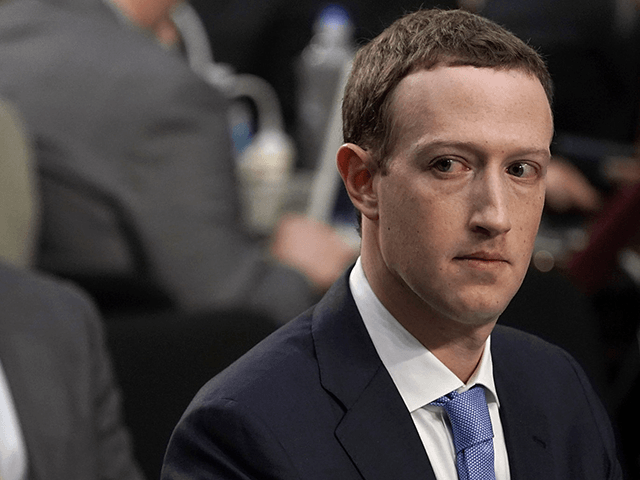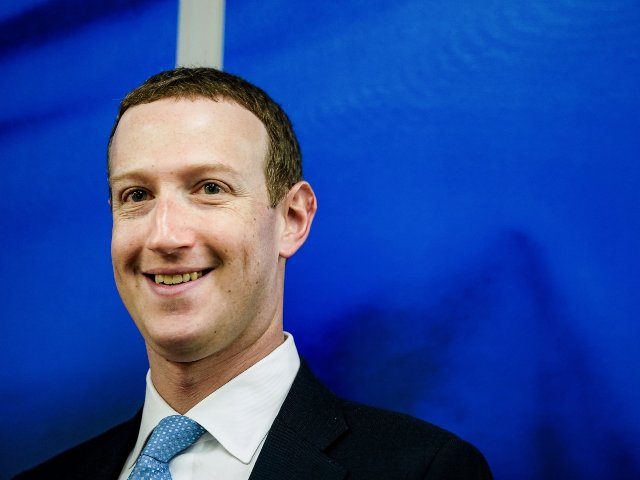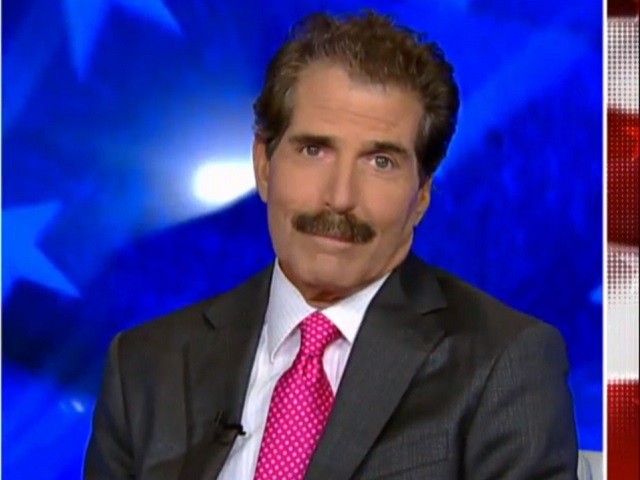Facebook made a revealing yet unsurprising admission in court this week: its vaunted third-party “fact checking” operation is often nothing more than the elevation of some opinions over others.
In a court filing in the defamation case brought by libertarian pundit John Stossel against the tech giant, Facebook said that its fact-checking labels cannot be defamatory, because they constitute “protected opinion.”

WASHINGTON, DC – APRIL 10: Facebook co-founder, Chairman and CEO Mark Zuckerberg testifies before a combined Senate Judiciary and Commerce committee hearing in the Hart Senate Office Building on Capitol Hill April 10, 2018 in Washington, DC. Zuckerberg, 33, was called to testify after it was reported that 87 million Facebook users had their personal information harvested by Cambridge Analytica, a British political consulting firm linked to the Trump campaign. (Photo by Alex Wong/Getty Images)
It’s similar to a judge telling Google that its claims to be a neutral platform were “mere puffery,” a marketing gimmick rather than a statement of fact, during the company’s legal battle with PragerU. Except, in the case of Facebook, the company admitted to the deception itself.
Facebook claiming that its fact checks are just opinions shouldn’t be surprising. It follows a longstanding pattern of the social network, which is to dodge responsibility and pass the buck wherever possible.
Legally, in the defamation context, you can be less responsible in your use of opinions than in your assertions of fact, which makes it convenient to redefine the statements of its fact-checkers as mere opinion.
In this case, Facebook is inadvertently close to the truth. Its fact-checkers are highly opinionated and partisan, perhaps none more so than Climate Feedback, the organization that fact-checked Stossel on Facebook. Climate Feedback and its related organizations exist to promote left-wing narratives on matters of scientific debate — it has directly targeted Breitbart News, and in May last year, it triggered the suppression of PragerU on Facebook.
At the same time, Facebook’s fact-checkers present their opinions to the public as neutral statements of fact. In other words, the company is trying to have the benefits of being an authority on empirical questions without any of the legal responsibilities.
It fits in with the company’s wider approach. Facebook’s entire fact-checking apparatus is designed to avoid taking responsibility. Instead of hiring in-house fact-checkers, the company outsources the task to third parties — mostly liberal nonprofits and corporate media organizations, which are empowered to suppress their competitors, including Breitbart News.
By outsourcing its fact-checking operation in this manner, Facebook can attempt to place the blame for any acts of censorship on outside parties. Indeed, when users want to appeal the decision to fact-check, Facebook will not hear them, instead directing their appeals to the third-party fact-checker in question.
Of course, this system doesn’t stand up to scrutiny. Facebook claims its fact-checkers are independent, yet it still empowers them to automatically censor any content that they please by enforcing their decisions. The platform does not have to do that, and it could, if it wished, reverse unfair fact checks. But that is exactly the accountability they are trying to side-step in the first place.
On the flipside, Facebook will also take action in what it considers to be emergencies. When the Hunter Biden laptop story broke, Facebook did not wait for the verdict of fact-checkers before censoring it. Facebook spokesman Andy Stone said that the story was preemptively censored ahead of fact-checking by third parties — but those fact checks never came, and Stone has been silent about the matter ever since.
Like changing its name to “Meta,” which theoretically allows Facebook to have a fresher set of Google search results, Facebook’s system of third-party fact-checking, together with its simultaneous claim that fact checks are both impartial truth and mere opinion, are all party of the same story: Facebook’s incomparable expertise at avoiding responsibility.
Allum Bokhari is the senior technology correspondent at Breitbart News. He is the author of #DELETED: Big Tech’s Battle to Erase the Trump Movement and Steal The Election.


COMMENTS
Please let us know if you're having issues with commenting.